Oldest Countries In The World: While the terrain on which countries are located has been there for millions of years, empires and countries have come and gone, and populations have moved. Surprisingly, there haven’t been many countries that have existed for thousands of years, and pinpointing the precise year of a country’s formation is challenging. We’ve compiled a list of the world’s oldest countries, which range from ancient kingdoms in Ethiopia to the Persian Empire in Iran to thousand-year-old counties in Europe.
Recommended: Oldest Presidents In The World and Their Ages
Top 15 Oldest Countries In The World By Age
1. Egypt: Although the first dynasty of Egypt may be traced back to roughly 6000 BCE, when numerous tribes of hunter-gatherers settled in the Nile River Valley, Egypt’s first kingdom is dated with about 3100 BCE. King Menes combined Upper and Lower Egypt into a single kingdom during this time-Menes is the Egyptian word for founder, and many historians think that Egypt’s founder was a pharaoh called Narmer.

As a result, Egypt is the world’s oldest country. King Narmer was able to take control of the whole accessible length of the Nile and build his capital in Memphis, which is now near Cairo. This dynasty was the first in a succession of dynasties that would rule Egypt for the next three millennia, until Alexander the Great conquered it in 332 BCE. After the Egyptian Revolution of 1952, modern Egypt was established in 1953.
2. India: Beginning with the Indus Valley Civilization around 3300 BCE, humans have resided in the Indian subcontinent region. The Vedic Period, which lasted from c.1500 BCE to c.600 BCE, marked the creation of India as a country, despite the fact that these early peoples produced one of the world’s earliest urban civilizations. This time was named after the Vedas, which were orally composed in Vedic Sanskrit and included knowledge about Vedic civilisation.
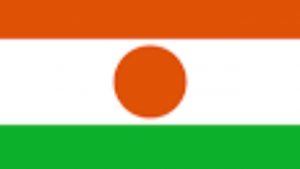
The Vedic Civilization established Hinduism (the Vedic books are still considered sacred by modern Hindus), as well as other cultural features of the Indian subcontinent that are still present today. The first kingdoms, known as Janapadas, emerged around 1200 BCE and lasted until the Vedic period ended. The conclusion of the Vedic period saw the birth of Hinduism, Jainism, and Buddhism in India, as well as the establishment of powerful dynasties that would control the country for the following three millennia. India as we know it today was created in 1947, following the country’s independence from the British Empire.
Recommended: Youngest presidents in the world currently
3. Afghanistan: By 3000 BCE, the Indus Valley Civilization may have established a colony in Afghanistan. They founded Mundigak, among the world’s earliest cities, near Kandahar today. In various places of Afghanistan, archaeologists have discovered evidence of minor Indus Valley Civilization communities.
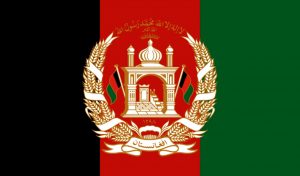
Generations of semi-nomadic people from Central Asia eventually settled in Afghanistan, bringing with them their culture. Darius I of Persia, and subsequently Alexander the Great and other empires, invaded Afghanistan. For sometime, the British had an impact on the country. Afghanistan established a presidential Islamic republic with a unitary government in 1973.
4. China: That earliest Chinese dynasty was the Xia Dynasty, that lasted from from 2070 BCE to 1600 BCE. The recorded history of China dates back to the Shang Dynasty (c. 1600 BCE–1046 BCE), hence there are no first-hand accounts from the Xia Dynasty. However, the Xia Dynasty is referenced in ancient chronicles like the Bamboo Annals, the Classical of History, and the Annals of the Grand Historian.
Many people thought the Xia Dynasty was more fiction than truth until excavations in the 1960s and 1970s found ruins that gave compelling proof for its existence.

China’s dynasty history ended in 1912, when the Qing Dynasty was deposed and a republic was established. The People’s Republic of China was established in 1949 and is still in existence today.. The recorded history of China dates back to the Shang Dynasty (c. 1600 BCE–1046 BCE), hence there are no first-hand accounts from the Xia Dynasty. However, the Xia Dynasty is referenced in ancient chronicles like the Bamboo Annals, the Classical of History, and the Annals of the Grand Historian.
Also see: Countries with the best education system in the world
5. Georgia: Georgia’s history may be linked back to the fabled kingdoms of Colchis and Karlti/Iberia. During Eurasia’s Bronze Age, circa 1500 BCE, both kingdoms were significant. Colchis was featured frequently in Greek mythology, notably in the stories of the Golden Fleece and Jason and the Argonauts. While these tales may be fiction, strong tribes did establish minor governments in Georgia as early as the 12th century BCE.
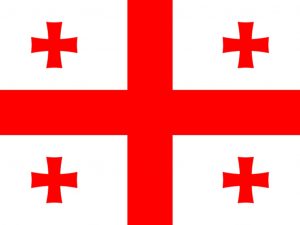
After a short Roman occupation about 66 BCE, Rome and the Iranian rulers struggled for more than 700 years for Georgia. In the 7th century CE, Georgia was also conquered by early Muslim invasions. The Persians and Russia governed the nation after that. Georgia joined the Soviet Union after a brief time of independence from the Russian Empire. Georgia was granted full independence in 1991.
6. Ethiopia: Human life has been present in Ethiopia for millions of years, since skeleton pieces discovered in the area belong to Australopithecus afarensis, an apelike species that may have been the origin of modern humans. The skeletal fragments are considered to be between 3.4 million and 2.9 million years old. Complex communities began to emerge as life thrived in Ethiopia, and one of the earliest kingdoms to emerge was Dmt, which lasted from c.980 BCE to c.400 BCE.
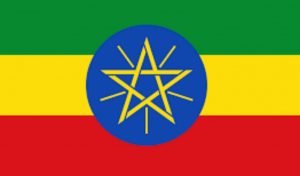
This kingdom’s inhabitants created irrigation systems, employed plows, farmed millet, and forged iron tools and weaponry. Following Dmt’s demise, the Aksumite Kingdom rose to dominance around 100 AD and lasted until 940 AD. This kingdom was succeeded by the Zagwe Dynasty, which was followed by the Solomonic Dynasty — Ethiopia remained a monarchy until 1974.
Also see: Countries with the Most Handsome Men in the world
7. Greece: Greece has been firmly in the hands of Grecians for at minimum 5,000-6,000 years, extending back to the Ancient Greek era. The Greeks were credited with instilling innovative notions in the globe and laying the basis for contemporary Western civilisation.

They produced significant progress in science, architecture, art and literature, law-making, and politics, and Athens was home to the world’s first version of democracy, which many countries are still grappling with today, almost 5,000 years later.
While the borders of Greece now differ from those of Ancient Greece, and the nation has passed through many hands, much of its ancient culture persists, establishing it as one of the world’s oldest countries.
8. Japan: Japan is also a candidate for the world’s oldest countries. According to Japanese folklore, the first Japanese Emperor, who is supposed to be a descendant of the sun goddess Amaterasu, took the throne around 660 BCE. In 300 CE, the country of Japan first appeared in Chinese literature, despite the fact that legend does not always lead to actuality.
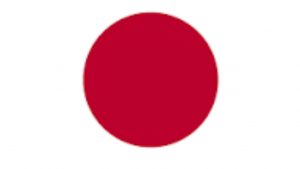
Regardless of whether you believe tale or not, Japan has been there for a long time. The kingdom has been ruled by a number of dynasties and emperors, and it is now ruled by Emperor Akihito, who is expected to retire in April 2019.
Recommended: Countries with the best roads in the world
9. Iran: Iran has a long history, with historians estimating that it was formed approximately 550 BCE under the Achaemenid Empire. The Persian Empire was founded about 550 BCE, and the land has since passed through the hands of several monarchs and empires. Persia was the name given to modern-day Iran until the 1930s, when it was formally altered.
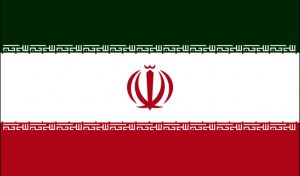
10. San Marino: San Marino, a tiny country noted for being one of Europe’s tiniest, is also one of the world’s oldest. In 301 CE, the nation was formally established by its founder, who was fleeing persecution for his Christian beliefs. Italy entirely encircles the nation, which acts as a microstate.
San Marino created its official constitution in 1600 CE, after centuries of operation as a Republic state. It is said to be the world’s oldest.
Recommended: Smallest Animals In The World (With Pictures)
11. Sri Lanka: With over 2500 years of history that have been written down, Sri Lanka boasts one of the oldest civilizations in the world. By historical records, kings have ruled Sri Lanka for more than 2.500 years, starting in the third century B.C. There were food gatherers and rice cultivators even during the Neolithic period, according to recent findings in Sri Lanka. History as we know it began with the arrival of the Aryans from North India, and little is known about this time.
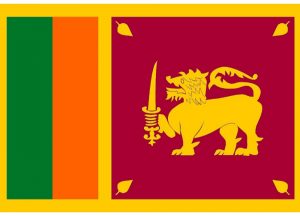
History as we know it began with the arrival of the Aryans from North India, and little is known about this time. The Aryans invented irrigation systems, improved agriculture, and used the iron. They advocated for the idea of governance as an artistic endeavor. King Pandukabhaya’s rule saw Anuradhapura develop into a significant monarchy among the Aryan settlements.
According to mythology, he is frequently recognized as Anuradhapura’s creator. Arahat Mahinda, the son of the Indian emperor Asoka, founded Buddhism sometime around 247 B.C., under the rule of King Devanampiya Tissa, a lineal descendant of Pandukabhaya. It’s possible to view this as a turning point in Sri Lankan history. The new civilization prospered, and Sri Lanka developed into a state with a strong foundation and high cultural standing.
Recommended: Most educated countries in the world 2023
12. Sudan: The earliest inhabitants of Northern Sudan date back 300,000 years. The oldest kingdom in sub-Saharan Africa dates back to the kingdom of Kush (about 2500–1500 BCE). The Kerma beakers, created by this civilization, were used to create some of the Nile Valley’s most exquisite ceramics.

The vast natural resources of Sudan, including gold, ebony, and ivory, were highly sought. Several objects in the collection of the British Museum contain these elements. Ancient Egyptians were lured southward in quest of these riches throughout the Old Kingdom (about 2686–2181 B.C.E. ), which frequently led to conflict as Egyptian and Sudanese monarchs fought for control of trade. Sudan was the most powerful state in the Nile valley around 1700 B.C.E.
Also see: Most Confusing Books of All Time
13. Isreal: One of the oldest countries on this list is situated near Israel. Around 1200 BC, the kingdom came to terms with its identity through the name Israel after years of conflict with the strong Egyptian culture.

The Israelites were able to grow from 25 villages to more than 300 in 200 years. The nation developed into Israel we know today as the society carried on growing.
Also see: Most corrupt African countries 2023
14. Portugal: While the founding date of 1139 doesn’t exactly place Portugal among the ranks of ancient civilizations, it deserves a place on this list due to the stability of its borders. As the rest of Europe has dragged ever-changing borders with various monarchs, empires, republics and people’s democracies, this has not been the case with Portugal.

Portugal was also instrumental to the age of discovery. Although the time of Portugal’s rise was imperialistic and detrimental to Aboriginal societies, it contributed substantially to creating the world we know today.
15. Mongolia – Independence in 1206: According to Factbook Report 2017, there are about 3 million people in Mongolia. This country has many ethnic groups. However, the majority is Khalkh at 81.9%. The Mongols are best known in history for their conquests.
In the 13th century, they spread the Mongol Empire throughout most of Eurasia. Besides Mongolia, they also live in minorities in regions of China and Russia. However, despite being dispersed, they are United by a common ethnic identity and heritage. Their dialect, Mongolian, is also known as their language. Mongolian ancestors are known as Proto-Mongols.
Recommended: Advantages And Disadvantages Of Social Media To Students
Conclusion: Despite the fact that human existence originated millions of years ago, the first evidence of human civilisation occurred relatively lately in the human chronology. Around 6500 BCE, some of the early civilizations arose when people ceased being nomadic and began to settle and develop one location. The notion of different countries and nations arose from these early settlements. All of the countries on this list were created thousands of years ago, and some of the first countries formed not long after civilisation started.

Edeh Samuel Chukwuemeka, ACMC, is a lawyer and a certified mediator/conciliator in Nigeria. He is also a developer with knowledge in various programming languages. Samuel is determined to leverage his skills in technology, SEO, and legal practice to revolutionize the legal profession worldwide by creating web and mobile applications that simplify legal research. Sam is also passionate about educating and providing valuable information to people.
Wow thanks for the information